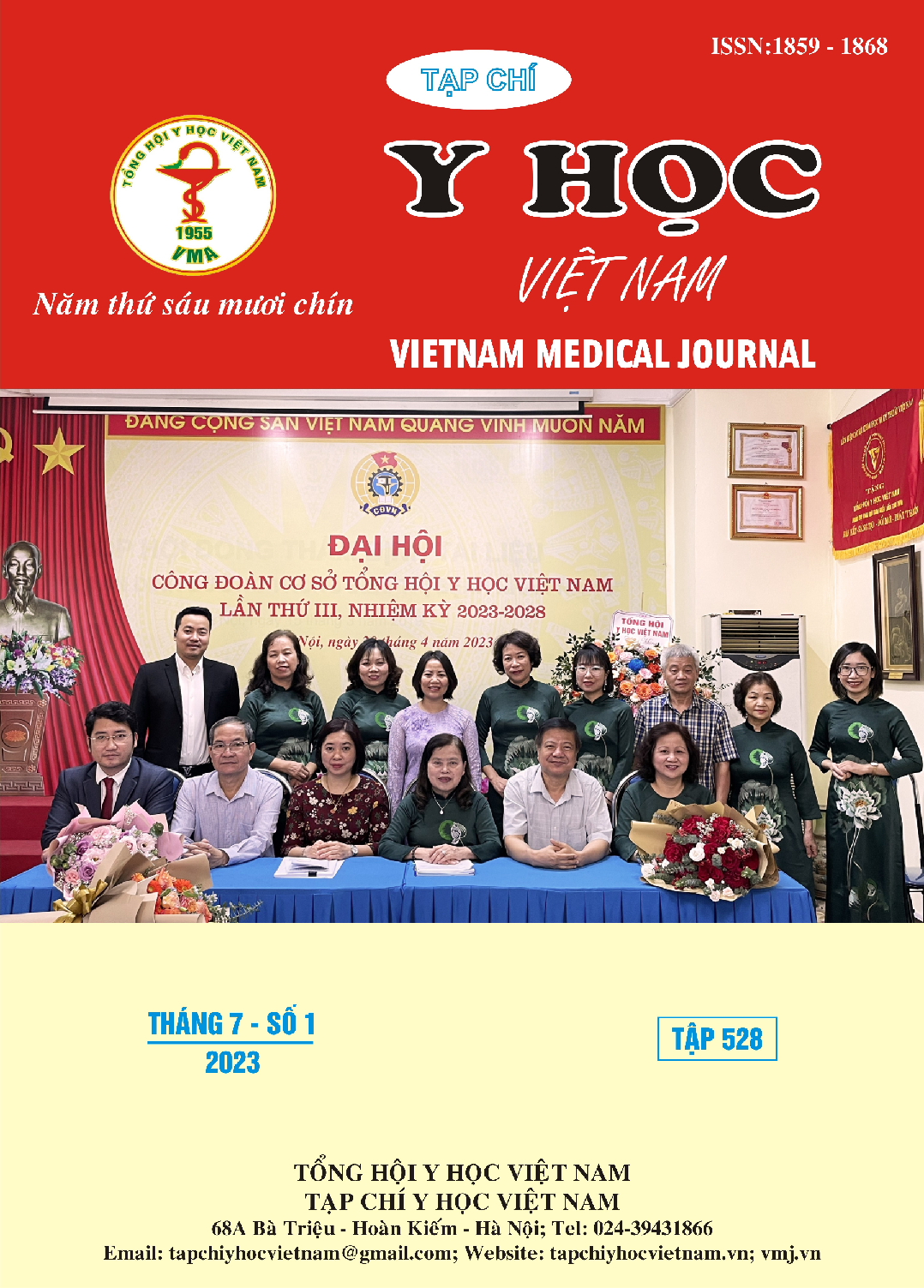STUDY OF THE ASSOCIATION OF THROMBOTIC GENES FOR RECURRENT MISCARRIAGE AT VIETNAM MILITARY MEDICAL UNIVERSITY
Main Article Content
Abstract
Objectives: To study the role of thrombotic monogenic polymorphisms with the risk of consecutive miscarriages. Subjects and methods: Controlled cross-sectional description study on 200 women with a history of consecutive miscarriages and 100 women who had had normal childbirth at the Department of Biology and Medical Genetics, Viet Nam Military Medical University. Results: -675 4G/5G polymorphism of SERPINE1 gene is most common at 81.5% in the disease group, the second most common is FGB polymorphism: -455 G>A (accounting for 49.5% of the disease group), followed by other gene polymorphisms ITGA2(46%), ITGB3 (0.5%), F7(11%), F13A1 (1.5%), no cases of F2 polymorphism, FV Leiden were detected in the disease group. The combined occurrence rate of 2 FGB and SERPINE1 gene polymorphisms was 38.5% of the disease group, 26.8% of the control group; combination of 2 polymorphisms of genes F7, SERPINE1 of the control group was 6.4% and 2.2% respectively and in the combination of 3 gene polymorphisms F7, FGB, SERPINE 1, the proportion of the disease group accounted for 12.5% of the control group did not have any cases. Conclusion: The coordinated appearance of 2 genomic polymorphisms FGB, SERPINE1 or F7, SERPINE1 or the coordinated appearance of 3 polymorphisms F7, FGB, SERPINE 1 increases the risk of thrombosis in patients with consecutive miscarriages
Article Details
Keywords
Miscarriage, Stillbirth, Hypercoagulation gene, F2, FVL, F7, F13A1, FGB, ITGA2, ITGB3, SERPINE1
References
2. Ford HB, Schust DJ. Recurrent pregnancy loss: etiology, diagnosis, and therapy. Rev Obstet Gynecol. 2009;2(2):76-83.
3. Seremak-Mrozikiewicz A, Drews K, Kurzawińska G, Barlik M, Mrozikiewicz PM. [The connection between Arg353Gln polymorphism of coagulation factor VII and recurrent miscarriages]. Ginekol Pol. 2009; 80(1):8-13.
4. Schved JF. [Definition of thrombophilia]. Ann Med Interne (Paris). 2003;154(5-6):279-282.
5. Parand A, Zolghadri J, Nezam M, Afrasiabi A, Haghpanah S, Karimi M. Inherited Thrombophilia and Recurrent Pregnancy Loss. Iran Red Crescent Med J. 2013;15(12):e13708. doi:10.5812/ircmj.13708
6. Joksic I, Mikovic Z, Filimonovic D, et al. Combined presence of coagulation factor XIII V34L and plasminogen activator inhibitor 1 4G/5G gene polymorphisms significantly contribute to recurrent pregnancy loss in Serbian population. J Med Biochem. 2020;39(2):199-207. doi:10.2478/jomb-2019-0028
7. Rostov-on-Don State Medical University of Ministry of Health of Russia, Rostov-on-Don, Bushtureva IO, Kuznetsova NB, et al. Prevalence of thrombophilic polymorphisms in women with reccurent miscarriage. Akuš, ginekol reprod. 2015;9(2):13-18. doi:10.17749/2070-4968.2015.9.2.013-018
8. Glueck CJ, Phillips H, Cameron D, et al. The 4G/4G polymorphism of the hypofibrinolytic plasminogen activator inhibitor type 1 gene: an independent risk factor for serious pregnancy complications. Metabolism. 2000;49(7):845-852. doi:10.1053/meta.2000.6749


